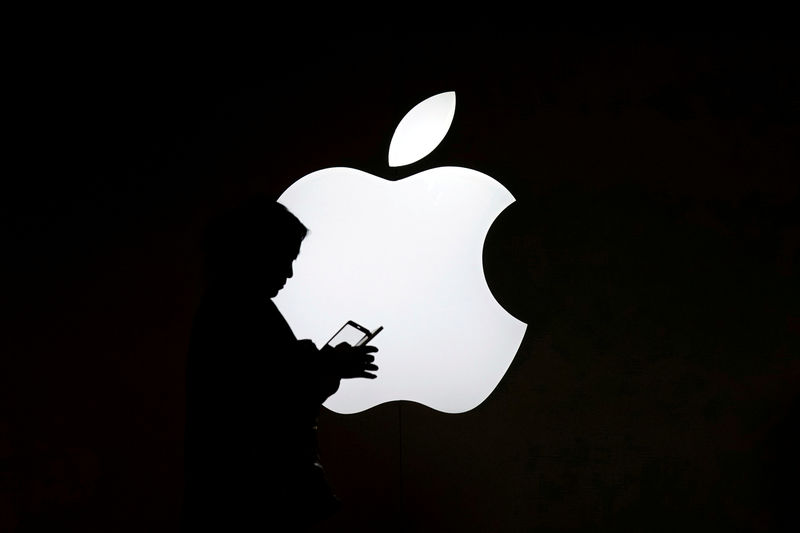By Andrew Chung
WASHINGTON (Reuters) - The U.S. Supreme Court on Monday agreed to take up Apple (NASDAQ:AAPL) Inc's bid to escape a lawsuit accusing it of breaking federal antitrust laws by monopolizing the market for iPhone software applications and causing consumers to pay more than they should.
The justices said they would hear Apple's appeal of a lower court's ruling that revived the proposed class-action lawsuit by iPhone buyers over commissions that the Cupertino, California-based technology company receives through its App Store.
The case could expand the threat of antitrust damages against companies in the rapidly growing field of electronic commerce, which generates hundreds of billions of dollars annually in U.S. retail sales.
President Donald Trump's administration backed Apple and urged the justices to take the case.
Businesses that potentially could be threatened by such consumer litigation are electronic marketplaces like the App Store, ticket site StubHub, Amazon's Marketplace and eBay where individual sellers set prices.
The antitrust claims against Apple date back to a 2011 lawsuit by several iPhone buyers in California federal court, including lead plaintiff Robert Pepper of Chicago, according to court papers. The plaintiffs said Apple has monopolized the sale of apps like messaging programs and games, leading to inflated prices compared to if apps were available from other sources.
Though developers set the prices of their apps, Apple collects the payments from iPhone users, charging developers a 30 percent commission on each purchase. Developers earned more than $20 billion in 2016, according to Apple.
The company sought to have the antitrust claims dismissed, saying the plaintiffs did not have the needed legal standing to bring the lawsuit.
The case hinges on a 1977 U.S. Supreme Court decision that limited damages for anti-competitive conduct to those directly overcharged rather than indirect victims who paid an overcharge passed on by others.
A federal judge in Oakland, California threw out the suit, saying the consumers were not direct purchasers because the higher fees they paid were passed on to them by the developers.
But the San Francisco-based 9th U.S. Circuit Court of Appeals in 2017 revived the litigation, saying Apple was a distributor that sold iPhone apps directly to consumers and must face the antitrust claims.
E-commerce reached $452 billion in U.S. retail sales in 2017, according to U.S. government estimates.
